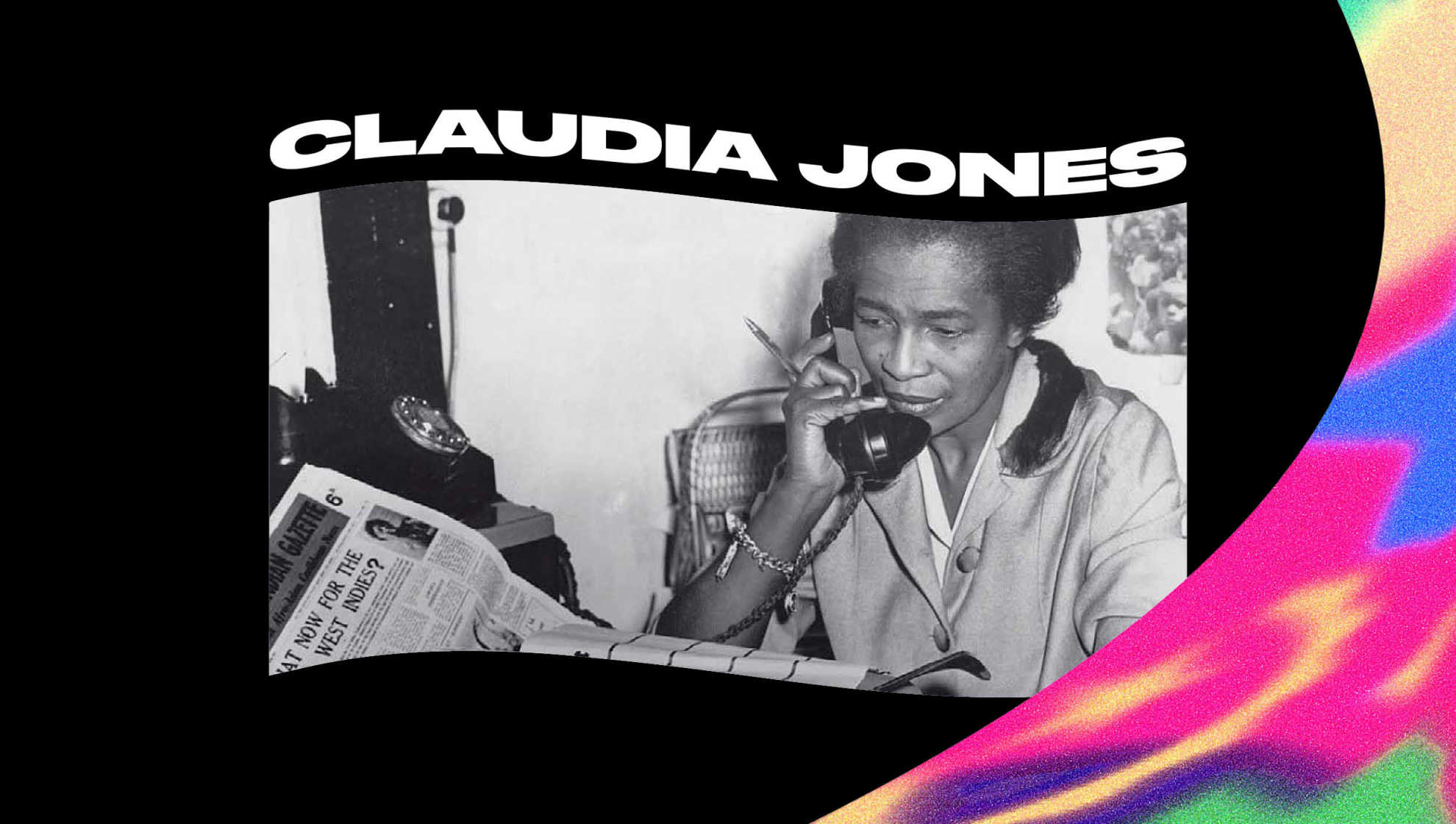Celebrating Black History Month: a history of Claudia Jones

Last editedOct 20212 min read
October marks Black History Month in the UK, the purpose of this month is to promote and celebrate Black contributions to British society. In the UK, Black History Month was first celebrated in 1987 as an ‘annual celebration of the contributions of Africa, Africans and people of African descent’ which was organised by Akyaaba Addai-Sebo.
Throughout Black History Month, we're posting four blogs as part of our 'Proud to Be' series. You can catch up on the first blog here.
Celebrating Claudia Jones
For Black History Month, I wanted to highlight a person who many people may not know of yet has made a lasting impact in Britain, Claudia Jones.
Claudia Jones was a feminist, political activist, anti-racist campaigner and Founder of the Caribbean Carnival (now known as Notting Hill Carnival). She was born as Claudia Vera Cumberbatch in Trinidad in 1915. At the age of eight, Claudia Jones and her family relocated to Harlem, New York.
In 1936, she joined the Young Communist League USA, a working-class youth organisation devoted to Marxism and Leninism, which later became the American Youth for Democracy during the Second World War. She would later become a member of the National Association for the Advancement of Colored People (NAACP) as well as the Communist Party USA.
Jones utilised her position in the Communist Party USA to advocate for more Black women to have leadership roles in the party, and to also highlight the oppression faced by poor black women. Her essay, “An End to the Neglect of the Problems of the Negro Woman!” published in 1949 helped to establish the foundations of intersectional feminism. Intersectional feminism is the understanding of how social categories such as race, class, ethnicity and sexual orientation can impact the way women experience oppression and discrimination. She wrote about the ‘super-exploitation’ that poor black women were subjected to and the different treatment black and white women faced in the workplace. Jones believed that liberation of the most oppressed was crucial for any liberation movement to be successful.
Her activity as a member of the Communist Party USA, during a time when anti-communist feeling was extreme, led to her imprisonment and deportation to London in 1955.
Jones had arrived in Britain at a time when there were racial tensions following an influx of West Indian migrants, known as the ‘Windrush Generation’ who had come to fill the post-World War labour shortage. In Britain, she focused on campaigning against the injustices faced by the British West Indian Diaspora.
In 1958, Jones co-founded one of the first major Black British newspapers, The West Indian Gazette (known as WIG). That summer, the White Defence League and other racist gangs launched a series of attacks on black communities. Violent riots broke out on the streets of both Notting Hill and Nottingham in August, lasting for five nights over the bank holiday weekend.
In response to the riots, Jones organised a carnival to celebrate Caribbean culture and ‘wash the taste of Notting Hill and Nottingham’ out of the black community’s mouths. The first annual Caribbean carnival (which later evolved into the Notting Hill Carnival) was held in January 1959 inside St Pancras Town Hall, televised by the BBC. The first event was subtitled ‘A people's art is the genesis of their freedom’ and included masqueraders, steelband, calypso and dance performances, plus a carnival queen competition. Claudia Jones wrote that ‘our Carnival [symbolizes] the unity of our people resident here and of all our many friends who love the West Indies’. This joyous occasion represented pride the community had, in being West Indian and was a reaction to the racist violence they had experienced.
Jones died in 1964 at the age of 49, but the legacy she left in Britain lives on.

